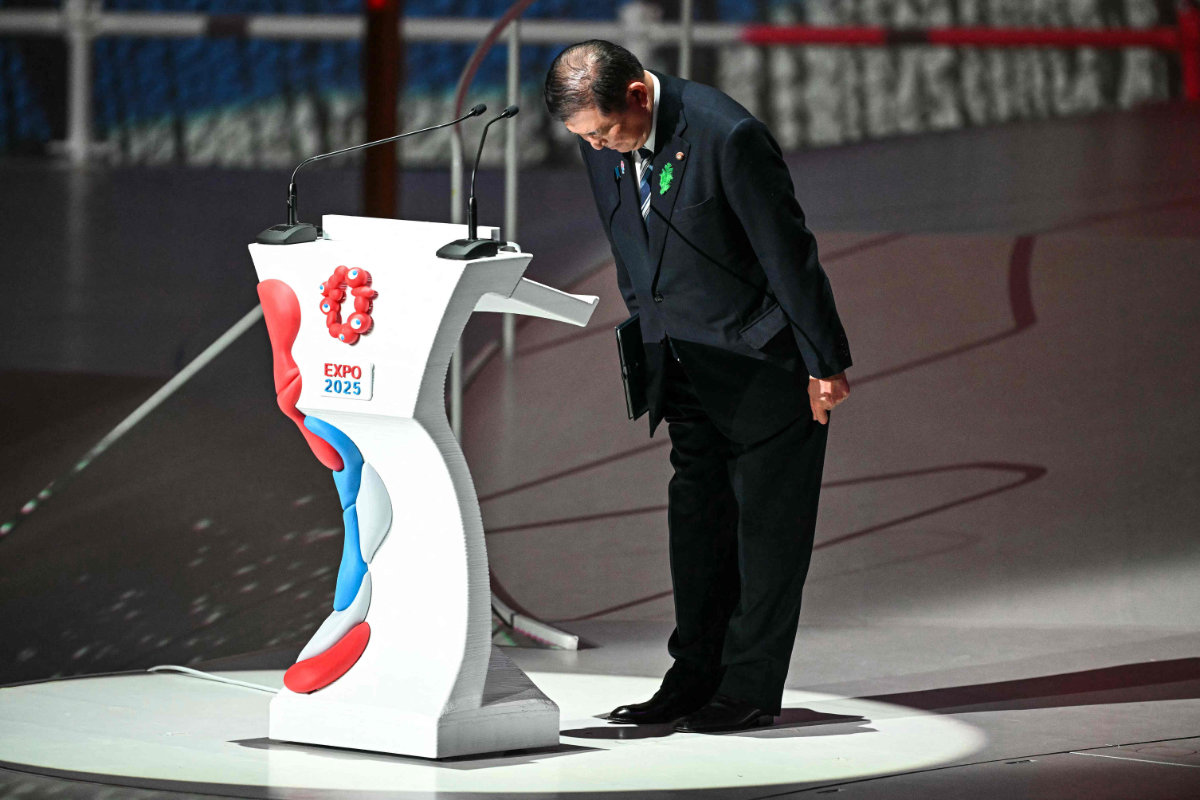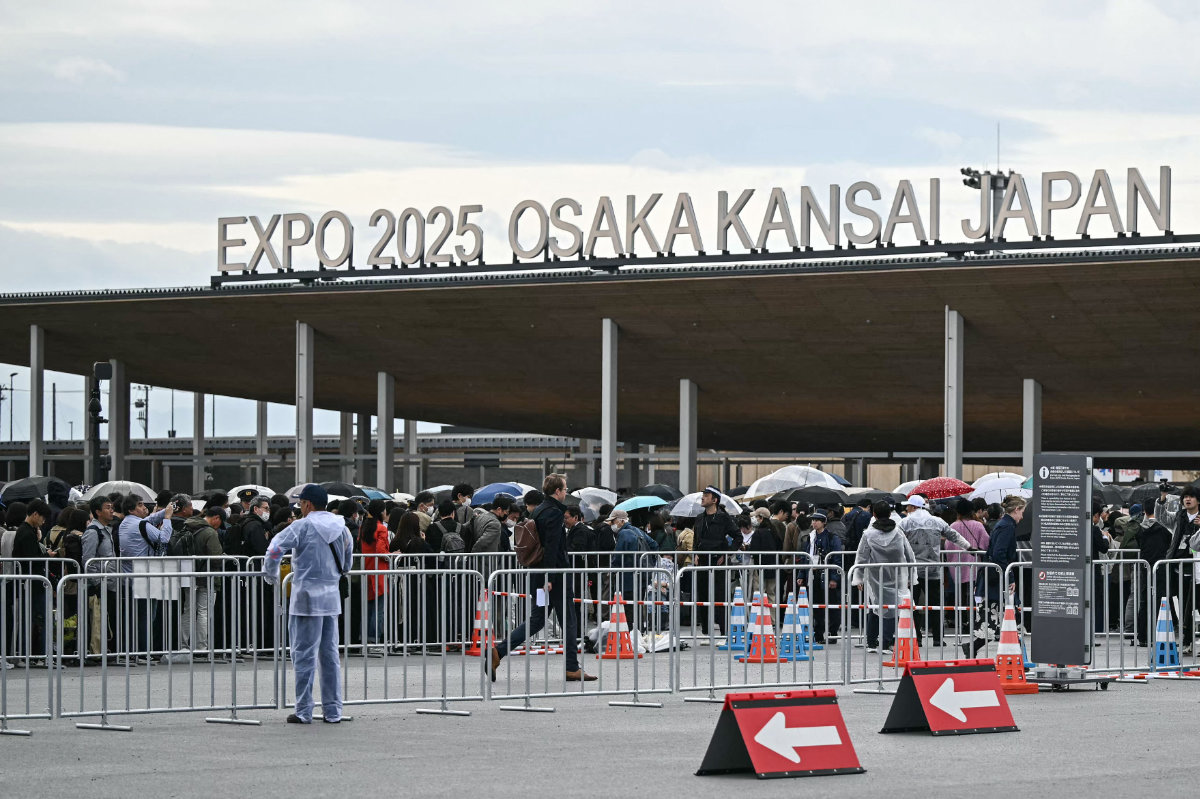WASHINGTON: When Vice President Kamala Harris flies to Chicago next week to accept her party’s nomination for the presidency, she will be met head-on with voters protesting one of her thorniest electoral issues: the Biden administration’s aid to Israel.
A coalition of some 200 social justice organizations is going forward with their plan to march at the Democratic National Convention on Monday, despite a late decision by Joe Biden — the main focus of their ire — to step down from the top of the ticket.
Pro-Palestinian activists resent Biden’s administration for funding Israel during its war against Hamas, which has killed around 40,000 Palestinians in Gaza, according to Gaza health officials. Israel launched an offensive after it was attacked on Oct. 7 by Hamas militants who killed 1,200 people and took some 250 hostages, according to Israel tallies.
Harris has surged in opinion polls since Biden’s July 21 withdrawal from the race, closing the gap with Republican nominee Donald Trump. But some activists say they hold her responsible, to varying extents, for the administration’s Israel policy, and the protests next week will add pressure on her to unite a discontented voter base before Election Day.
Hatem Abudayyeh, spokesperson for the March on the DNC coalition, said dozens of coalition group leaders met after Biden ended his campaign and discussed if they should change tack if Harris became the nominee.
“There was absolute consensus,” he recalled. “She represents the policies of the administration and it’s full steam ahead.”
The march will represent a contingent of historically Democratic voters who have said they will refuse to vote for the party nominee this time unless the White House puts conditions on its support for Israel.
According to a Reuters/Ipsos poll in May, some 44 percent of Democratic registered voters disapproved of Biden’s handling of the war.
Some pro-Palestinian leaders expressed hope that Harris might diverge from Biden on Israel, noting she was the first within the administration to call for a ceasefire.
Abandon Biden, a pro-Palestinian campaign founded to mobilize voters against Biden, believes Harris bears responsibility for Gaza’s humanitarian crisis but is not yet launching an “Abandon Harris” campaign, spokesperson Hudhayfah Ahmad said. The group will be in Chicago and watching for changes to the Democratic party’s position.
“We’re going to give (Harris) a lot more grace than we gave Joe Biden,” Ahmad said. “However, I will emphasize, the clock is ticking and our patience is running out.”
Protestors flocking
Organizers have said the DNC march will be family-friendly. Still, some onlookers worry that the combination of a heavy police presence, throngs of protesters and potential ill-intentioned agitators could combust, as it did on college campuses in the spring.
“It’s going to be a mess in Chicago starting Sunday,” said Emad Salem, a Harris delegate from Texas and part of a group called “Delegates Against Genocide” that is urging the DNC to call for a ceasefire and an arms embargo against Israel.
“This is not just Palestinians and Arabs and Muslims. We’re talking about tens of thousands of Gen Zers participating, African Americans, Latinos, anti-war protesters from all over the place.”
Anti-Defamation League CEO Jonathan Greenblatt said his pro-Israel organization was “deeply concerned” about the increased intensity of recent US protests and called on Chicago police to hold bad actors accountable.
Abudayyeh said the crowds are expected to peak in the tens of thousands on Monday and Thursday, coinciding respectively with the days Biden and Harris will speak, and most people would be coming from Palestinian and Arab communities in Illinois and neighboring states. The coalition includes groups advocating for a range of causes, including reproductive rights and racial justice.
Organizers have fought with city officials for months to get a permit for the rally and their desired route. After winning access to a rally site close to the United Center, where the DNC will be hosted, the coalition lost a bid this week for a longer march route, and the city barred them from using stages, portable toilets, tents or sound equipment.
Chicago police superintendent Larry Snelling told reporters that he did not want to “tie up additional resources” by lengthening the protest route, but police would ensure demonstrators could exercise their free speech rights and that they and the surrounding community would be safe.
A spokesperson for the nonprofit Israeli-American Council said it had struggled to get a permit from the city of Chicago to demonstrate outside the DNC, and was instead installing an art exhibit nearby to honor the hostages held by Hamas and support Israel.
Pro-Palestinian activists plan to march on the DNC, hoping Harris will hear them
https://arab.news/y2eup
Pro-Palestinian activists plan to march on the DNC, hoping Harris will hear them

- Some 200 social justice organizations is going forward with their plan to march at the Democratic National Convention
- Pro-Palestinian activists resent Biden’s administration for funding Israel during its war against Hamas































